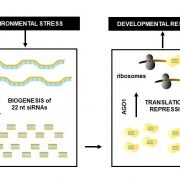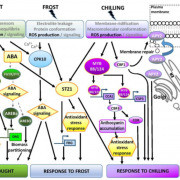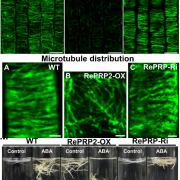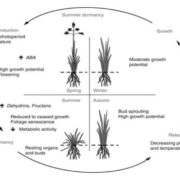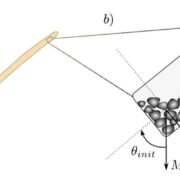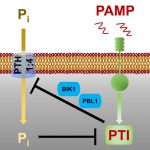GWAS on multiple traits identifies mitochondrial ACONITASE3 as important for acclimation to submergence stress (Plant Physiol.)
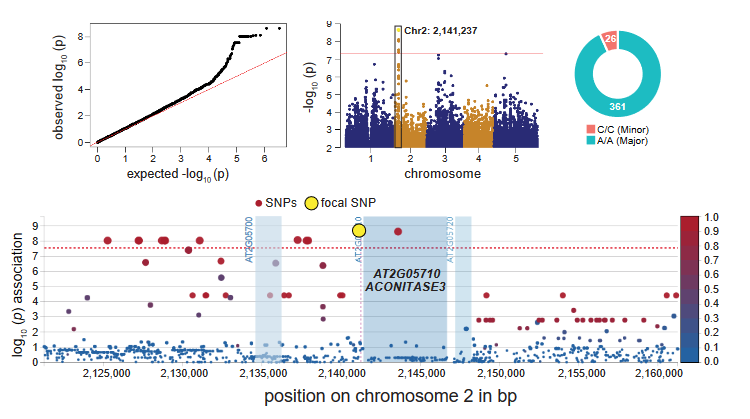 Climate change is affecting the frequency and intensity of extreme climatic events such as floods, reducing crop production severely. Submergence might lead to a lack of O2, light, and carbon dioxide, having an impact on the carbohydrate content and ATP synthesis. In this work, Xiangxiang et al. characterise a collection of 387 Arabidopsis accessions, which were subjected to prolonged submergence followed by recovery. Seven traits were quantified, including protein, nitrate and chlorophyll concentrations which showed a positive correlation after recovery. Genome-Wide Association Studies (GWAS) were performed to find associated Single Nucleotide Polymorphisms (SNPs) with the measured traits. As a result, the ACONITASE 3 (ACO3) gene was found and functionally characterized: the authors observed that the protein is localized in the mitochondria during submergence. They also suggest that an SNP found in the ACO3 promoter might affect the binding site of ANAC017, a transcription factor that regulates the mitochondrial retrograde response. Finally, RNA-seq in knock-out and overexpression lines showed that ACO3 impacts on the regulation of nitrogen assimilation and in the TCA cycle during acclimation to submergence and recovery. (Summary by Eva Maria Gomez Alvarez, @eva_ga96) Plant Physiol. 10.1093/plphys/kiac011
Climate change is affecting the frequency and intensity of extreme climatic events such as floods, reducing crop production severely. Submergence might lead to a lack of O2, light, and carbon dioxide, having an impact on the carbohydrate content and ATP synthesis. In this work, Xiangxiang et al. characterise a collection of 387 Arabidopsis accessions, which were subjected to prolonged submergence followed by recovery. Seven traits were quantified, including protein, nitrate and chlorophyll concentrations which showed a positive correlation after recovery. Genome-Wide Association Studies (GWAS) were performed to find associated Single Nucleotide Polymorphisms (SNPs) with the measured traits. As a result, the ACONITASE 3 (ACO3) gene was found and functionally characterized: the authors observed that the protein is localized in the mitochondria during submergence. They also suggest that an SNP found in the ACO3 promoter might affect the binding site of ANAC017, a transcription factor that regulates the mitochondrial retrograde response. Finally, RNA-seq in knock-out and overexpression lines showed that ACO3 impacts on the regulation of nitrogen assimilation and in the TCA cycle during acclimation to submergence and recovery. (Summary by Eva Maria Gomez Alvarez, @eva_ga96) Plant Physiol. 10.1093/plphys/kiac011



